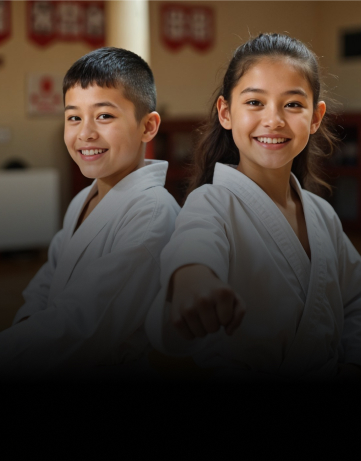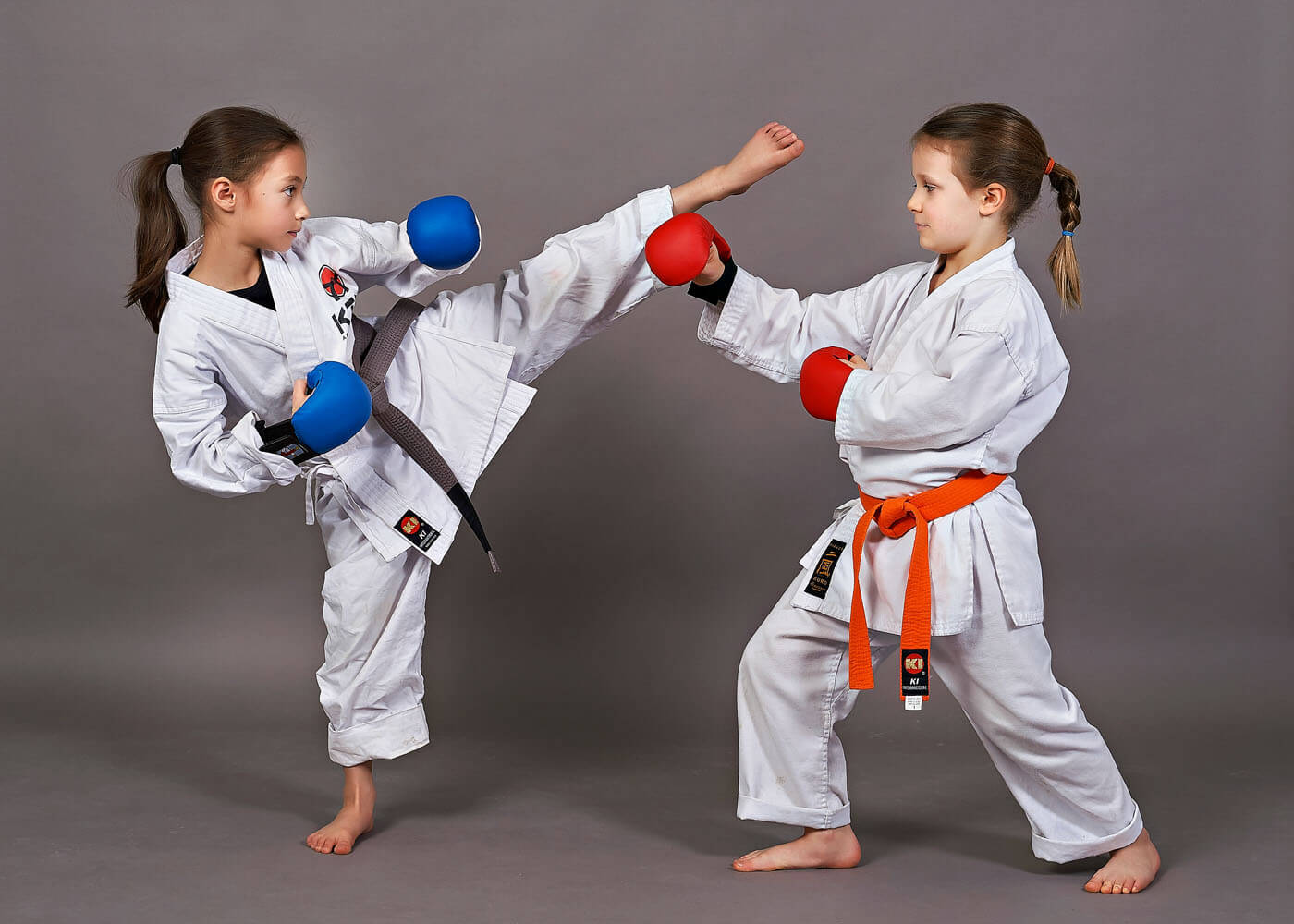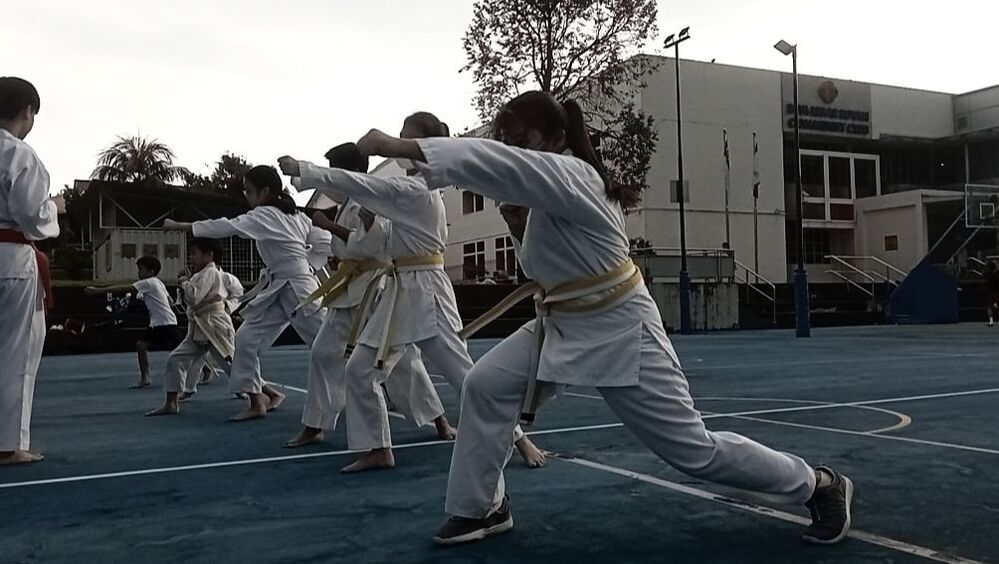Best Martial Arts for Families – Fun Experiences and Growth Blended
Wiki Article
Exactly How Karate for Kids Can Boost Confidence and Discipline in Young Martial Artists
Karate for youngsters provides a special possibility to build confidence and self-control in young martial artists. As they discover new methods and face difficulties, they not only get abilities yet additionally create a solid sense of self-respect. This structured atmosphere motivates them to value the journey of enhancement. How does this training convert right into their daily lives? Discover the deeper connections that make karate more than simply a sporting activity.The Importance of Self-confidence in Childhood Years Advancement
Confidence is a vital foundation in childhood development. When you support your kid's self-confidence, you empower them to encounter difficulties, take dangers, and express themselves openly. Youngsters with confidence are extra ready to check out social situations and brand-new activities, which can lead to long-term relationships and important experiences.Encouraging your youngster to step out of their comfort area cultivates durability. They learn that failing isn't the end yet rather a stepping rock to success. By commemorating their achievements, despite exactly how small, you assist them recognize their capacities and worth.In this trip, assistance and favorable reinforcement from you play a vital duty. Whether it's through appreciation or simply being existing, your participation boosts their self-confidence. As they expand, this self-assurance ends up being a lifelong possession, outfitting them to navigate both obstacles and possibilities with a solid feeling of self.How Karate Educates Discipline and Focus
Martial arts helps you develop discipline and focus via its structured training program. As you exercise mindfulness during each session, you'll discover to focus better both on and off the mat. And also, establishing and attaining goals in karate enhances your ability to stay fully commited and attentive.Structured Training Routine
While you take part in karate training, you'll rapidly uncover just how a structured regimen imparts self-control and focus in young experts. Each course follows a particular style, consisting of workouts, strategy method, and sparring. This consistency instructs you to devote and value the procedure to renovation. As you learn techniques and forms, you develop a sense of obligation for your own progress.The structured setting encourages you to set objectives, whether understanding a brand-new belt or perfecting a kata. You'll find that staying concentrated during drills and courses hones your concentration. The self-control you cultivate in karate extends past the dojo, favorably influencing your schoolwork and day-to-day regimens. Each session strengthens the value of commitment, assisting you become an extra self-displined person.Mindfulness in Method
As you practice karate, you'll locate that mindfulness comes to be a crucial part of your training. Each action requires your complete focus, assisting you stay concentrated on the existing moment. You'll learn to disregard disturbances and focus on your breathing, movements, and intentions. This enhanced understanding sharpens your reflexes and boosts your discipline.During sparring or types, you'll discover the relevance of being psychologically present - Karate Salisbury MD. You'll see exactly how this focus not just enhances your strategy yet likewise builds your self-confidence. By practicing mindfulness in martial arts, you cultivate patience and durability, vital traits that expand beyond the dojo. By doing this, karate educates you to harness your mind, assisting you create a regimented approach to obstacles both on and off the mat
Objective Setting Techniques
Setting goals in martial arts isn't nearly earning belts; it's a powerful method to grow technique and emphasis. When you set particular, attainable targets, you produce a roadmap for your progression. Rather of simply intending to boost your kicks, attempt concentrating on understanding a certain strategy each month. This strategy maintains you determined and engaged.Breaking down bigger objectives right into smaller sized, convenient actions aids you track your progression and commemorate little success along the means. Whether it's improving your position or raising your sparring endurance, every objective enhances your dedication. As you attain these objectives, you'll develop confidence in your skills and develop a strong sense of discipline that extends past the dojo right into daily life.Building Resilience Through Martial Arts
Fighting style, specifically martial arts, provides kids an unique opportunity to construct strength in a helpful atmosphere. In classes, they encounter obstacles that push their limits, whether it's competing or grasping a new strategy with a companion. Each problem, like a missed out on kick or a shed suit, becomes a chance to discover and grow.As they exercise, youngsters learn to welcome pain and keep attempting, even when points get tough. They uncover that failure isn't completion; it's part of the journey. This mindset aids them bounce back more powerful, not just in the dojo, yet in daily life.With each challenge they conquer, your child develops confidence in their capability to tackle challenges, fueling their decision. Through martial arts, they'll understand that strength isn't almost physical strength; it's regarding psychological grit and determination, encouraging them to face whatever life tosses their way.The Function of Regard in Karate Educating
Regard is a foundational principle in karate training, cultivating a culture of self-control and sociability among trainees. When you tip onto the dojo flooring, you're not just discovering strategies; you're also discovering the original source to value your instructors, peers, and the art itself (Karate Salisbury MD). Bowing at the beginning and end of course isn't simply a formality; it represents your recommendation of others' dedication.as and efforts you establish common regard, you'll find it improves your understanding experience. You'll listen much more diligently to your teacher and gain understandings from fellow students. This atmosphere motivates positive criticism and support, allowing everybody to expand together.Moreover, regard grows self-control. Identifying the worth of tough work and humility assists you remain concentrated on your training. Consequently, this regard converts into your everyday life, improving your communications and partnerships outside the dojo. Through karate, you discover that respect is essential for personal growth and neighborhood buildingAttaining and establishing goals Success in Karate

Social Abilities and Teamwork in the Dojo
While training in the dojo, children naturally create vital social skills and team effort capabilities. As they practice alongside peers, they discover to communicate successfully, share space, and assistance each other. Each class offers chances for cooperation, whether it's during companion drills or group exercises. This synergy fosters relationships and creates a sense of belonging, making the dojo a nurturing environment.Kids additionally acquire useful conflict resolution skills. When they run into difficulties, such as arguments during sparring, they discover to browse these situations constructively. They practice persistence and compassion, understanding that every person has various strengths and weaknesses.Moreover, taking part in team activities cultivates a feeling of liability. You'll see your child discovering to count on teammates and take obligation for their duty in a team. These experiences not only enhance their martial arts trip yet also equip them with social tools they'll bring right into various other locations of life.
The Long-Term Advantages of Karate Beyond Youth
As youngsters grow up and move into their adult years, the benefits of karate extend far beyond the dojo. You'll find that the discipline and focus learned through karate can convert right into your professional and scholastic life. Establishing and attaining objectives in martial arts promotes a strong work values, which can press you to master any type of endeavor.Moreover, the confidence gained from mastering strategies and competing can enhance your self-esteem, aiding you take on difficulties head-on. This durability becomes important as you face the unpredictabilities of adulthood.Additionally, the social abilities developed through synergy and view publisher site friendship in the dojo can result in better partnerships in both individual and professional balls. You'll learn to connect successfully, resolve problems, and develop a supportive network.Ultimately, karate forms not just experienced martial musicians, this link however well-rounded people ready to tackle the world.Frequently Asked Inquiries
What Age Is Best to Start Martial Arts for Kids?
You can begin karate as very early as age 4 or five, yet it commonly depends upon your youngster's maturation and rate of interest. Finding a course that suits their age and energy degree makes a big distinction.Are There Any Type Of Health Perks From Exercising Karate?
Yes, exercising karate deals various wellness benefits. You'll enhance your toughness, control, and flexibility while boosting cardiovascular health and fitness. And also, it enhances focus and mental wellness, making it a fantastic choice for general physical and psychological health and wellness.Just How Frequently Should Youngsters Go To Martial Arts Courses?
You need to urge your kids to attend karate classes at least two to three times a week. Consistency assists them discover methods properly and create abilities, making their experience extra rewarding and enjoyable in the future.Can Karate Aid With Handling Stress And Anxiety in Children?
Yes, karate can help manage anxiety in children. It teaches emphasis and self-constraint while giving a secure electrical outlet for power. You'll observe your kid growing more tranquil and positive as they practice frequently.What Gear Is Needed for Children Beginning Karate?

Report this wiki page